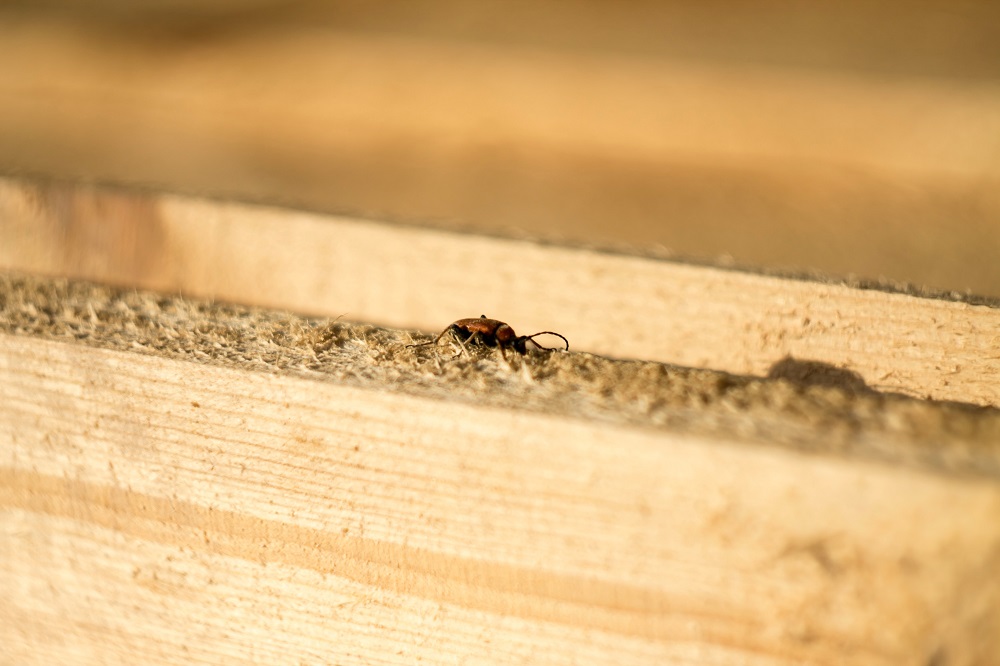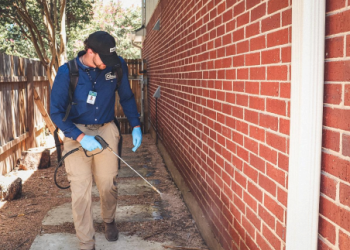Table of Contents

Termites are some of the most destructive insects on the planet, and unfortunately, most homes are a prime target for infestation. Termites are known for eating wood, but they’re actually after the cellulose. While they do serve a purpose in our ecosystem, the fact that they seek shelter in homes makes them a challenge.
A termite infestation will damage your home, and if you don’t address the damage soon enough, it can become quite extensive. The key to preventing major damage is to find the termites early.
If you think you might have a termite problem, or you’d just like to stay on top of things, these tips will help.
1. Get regular termite inspections
The value of regular termite inspections is massive. For instance, termites cause more than $5 million in property damage each year because the problem is hard to spot until it’s too late.
Without regular inspections, you risk letting damage get out of control, which will inevitably lead to higher repair costs.
Professional pest control companies can spot termites during regular inspections. For instance, they’ll look for winged termites, mud tubes used to connect colonies, hollow wood, and sources of dead wood close to the house that will attract termites.
All of these things can be spotted during regular inspections and managed quickly to prevent extensive damage.
2. Keep wood mulch away from your home
Termites love to eat wood mulch, and while it’s a popular material to use in landscaping layouts and gardens, it’s best kept at a distance from your home. If you have to use wood mulch near your home for some reason, try finding an alternative or move everything further out.
For example, if you planted something right next to your home that requires wood mulch, try to move it further away. If you can’t, then consider removing it entirely.
There’s no real guide for how far away wood mulch should be from your home, but the further away, the better. Perhaps at least 100 feet would be ideal, but termites will travel so you don’t want to give them a reason to gather where they could easily wander and find your home’s foundation.
3. Store firewood away from your home
There are many reasons to store firewood far from your home, and termites happen to be the biggest. Since termites love dead wood, they will feast on your firewood. This may not seem like a big deal at first, but eventually, they’ll make their way through to your foundation, your decks, and any other wooden parts of your home.
Keep your firewood in a wood shed or covered by a tarp at least 50-100 feet from your house. Resist the temptation to stack wood against your home on the porch or on the side of the building. It’s convenient, but it can come at a price.
4. Use DIY deterrents
You can deter termites in several ways. The easiest way is to plant things that naturally deter termites. It will take some time to plant, but unlike traps and sprays, you only have to do it once.
Some plants that repel termites include:
· Vetiver grass
· Lemongrass
· Mint
· Catnip
· Garlic
· Marigolds
All of these are easy to plant, and you’ll find that mint, catnip, and lemongrass tend to take over areas pretty quickly. You don’t have to worry about having sparse patches of these plants. As a bonus, you can harvest these three to make tea.
5. Pick up dead branches and move them
Branches are another form of deadwood termites enjoy. Anytime you clip your bushes, trim your trees, or saw off whole limbs and branches, make sure you put them in a pile far from your home. Don’t let dead wood from trimming your trees pile up around your home and attract termites.
6. Move scrap wood away from your home
Scrap wood is yet another reason termites will gather around your home. If you keep scrap wood, store it somewhere that doesn’t pose a risk to your home or any other building. If you’re going to store it in a building, make sure that building is sealed up tightly. Otherwise, store it in a metal shed that termites can’t damage.
Keep the termites at bay
Remember that it can be expensive to repair termite damage and you’ll end up having to repair more than you think. Do everything you can to eliminate existing termites and also take preventive measures to keep them from invading your home.
Although you can take some preventive measures on your own, be sure to get a professional inspection to make sure your home isn’t already under attack.







